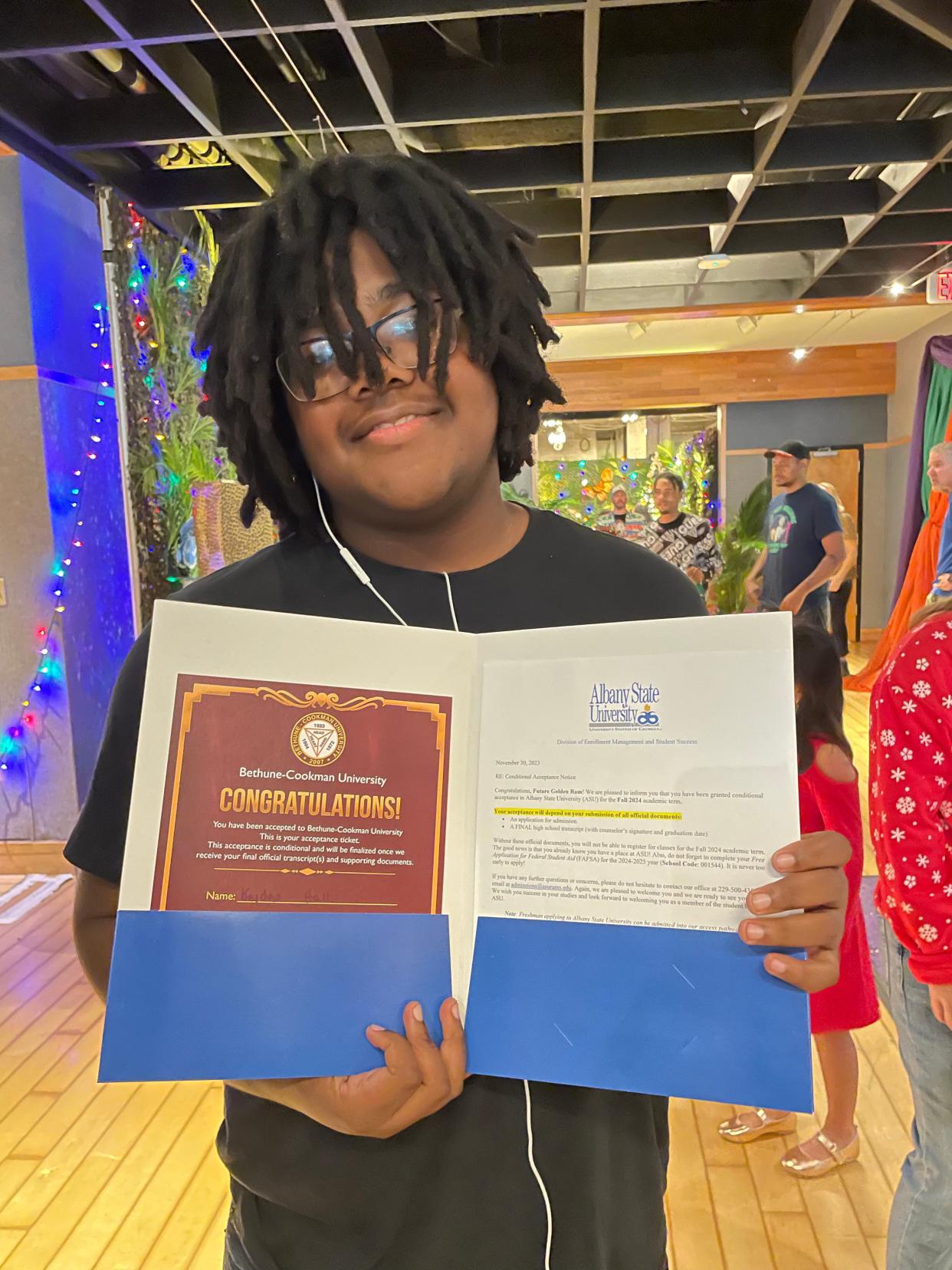Jay Fund CEO: Local boy's cancer journey shows importance of supporting kids like him

In early December, I went to our Tom Coughlin Jay Fund holiday party, as I do every year. It’s a special celebration for patients and families tackling childhood cancer, both those whom the Jay Fund is helping now with financial and emotional support and those we have helped over the years.
About 400 people were there, excitedly running around WJCT Studios, where the halls were decked to fit the “Let’s Get Wild” theme. Vines fell from the ceiling and the Jacksonville Zoo had a live boa constrictor for petting. The kids enjoyed arts and crafts, games and dancing. Santa and some elves added to the commotion. One teenager stood out from the crowd.
His name is Keyden and he’s a senior in high school. I watched him walk around the party visiting old friends with a folder in his hands and that caught my eye. He looked like he was heading to class. I saw him smiling, having fun and sharing something in the folder with some of his former doctors and nurses as well as my Jay Fund colleagues.
Watching Keyden, I thought about how far he’s come from the 11-year-old I met in 2017, when he was diagnosed with acute lymphoblastic leukemia. His cancer journey illustrates that childhood cancer is not a short-term sprint — it’s a marathon, often a lifelong one that requires physical and mental toughness.
Keyden went through two and a half years of chemotherapy and was unable to attend middle school, instead having to do virtual courses and balance classwork with his intense and sometimes unpredictable treatment schedule. A sports lover who hopes to someday work as a sports journalist, analyst or statistician, he was unable to play sports himself.
Instead, he had to be content with watching football and basketball on TV.
Keyden celebrated his last chemo treatment in January 2020. Treatment was over then, but there were ongoing challenges to tackle. He approached the next phase of his journey with persistence and patience, continuing to take virtual courses during COVID until he was finally able to return to the in-person classroom as a high school sophomore during the 2021 fall semester.
Cancer had taken a toll on his body; he had to give himself time to heal and rebuild. He developed a respiratory virus and hand-foot-mouth disease as his weakened immune system recovered. While he gained strength, he dove into the activities that he could tolerate. Aiming to get as close to sports as possible, he became a manager for the school lacrosse team and a statistician for the football team.
After watching lacrosse from the sidelines, he started working out with the team and eventually made his way to the field. Keyden played defense, growing tougher each season.
Letters: JFRD appointments show Mayor Deegan is not the 'strong mayor' Jacksonville needs
This past fall, six years after being stuck watching football from his hospital bed, he was able to get clearance from his doctors and play football for the first time on the Riverside High School team. His teammates rallied around him and he learned the fundamentals of playing on the defensive line, contributing to the team’s phenomenal season.
Keyden and the more than 15,000 children diagnosed with cancer in the U.S. each year deserve to be cheered on at every phase of their life, whether they are in treatment or far-removed from it, because this disease can continue to impact them for years to come. According to the American Cancer Society, childhood cancer can have long-term mental and physical effects, from learning disabilities to slowed growth to reduced fertility.
Surprise diagnosis for donor: He wanted to donate a kidney to help Jacksonville man. Instead, it saved his own life.
Every six months, Keyden goes in for follow-up appointments. He sees kidney specialists regularly to monitor the toll that the harsh chemotherapy drugs took. He will require lifelong follow-up care.
But at the holiday party, this tall, soft-spoken kid with a contagious smile was joyful and confident, working the room with his folder. He approached me and my dad, Tom Coughlin, and handed us the folder. I got chills as I opened it up to see two letters inside.
They were college acceptance letters. He has two options to attend college and pursue his dreams. Having Keyden share that news was the best gift for all of us at the Jay Fund this holiday season ― we have had the privilege of being beside him on his toughest days and will continue to be there for him as his next great chapter unfolds.

Keli Coughlin is CEO of the Tom Coughlin Jay Fund, a Jacksonville Beach nonprofit that provides financial, emotional and practical support to families tackling childhood cancer. Learn more at tcjayfund.org.
This guest column is the opinion of the author and does not necessarily represent the views of the Times-Union. We welcome a diversity of opinions.
This article originally appeared on Florida Times-Union: Jacksonville teen's story reflects lifelong cancer journey

